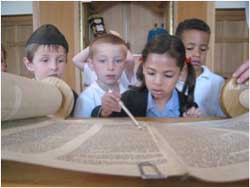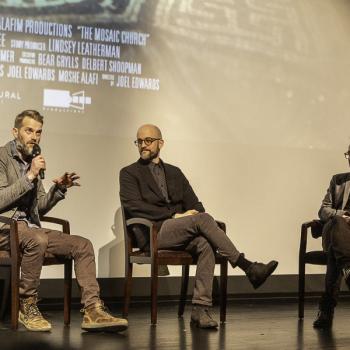
Israel's defenders have responded by launching an educational and cultural counteroffensive. Partnering with several private Jewish foundations, Hillel has trained student volunteers to become pro-Israel advocates and, joining forces with the Charles and Lynn Schusterman Family Foundation, established the Israel on Campus Coalition. Today, the ICC encompasses twenty-seven diverse American Jewish organizations -- from the Anti-Defamation League to the Jewish National Fund -- all of which advocate for Israel through joint sponsorship of pro-Israel campus programming. The result is a less defensive and more mature Israel advocacy on campus -- and, overall, it seems to be paying off, bolstering student support for the Jewish state, one event at a time.
Israel campus advocacy has also become more progressive. In the past, Jewish students who loved the Jewish state but were critical of specific Israeli policies could seek solidarity with the centrist and somewhat hawkish campus-based Israeli public affairs committees. Today, at twenty North American campuses they have the option of joining the Union of Progressive Zionists (UPZ), united under the banner "Student Activists for Peace in Israel/Palestine." The UPZ's "2006 Peace Accords Campaign" calls on Jewish and Muslim student leaders to develop a framework for resolving the Israeli-Palestinian conflict. Groups of Jewish and Muslim students are in the process of drafting accords to be presented at the annual UPZ conference this November.
Scholarship -- Learning for Jewish Living
On the academic front, too, students have more options than ever to deepen their Jewish knowledge.
In 1966, for example, approximately sixty universities offered Jewish studies classes. In 1992 (the last year for which statistics are available), more than 400 North American universities included Jewish studies-related courses in their curriculum. As Professor Sarna says, "There's hardly a significant college in America that doesn't offer [these] courses." Notably, the classes are not only attended by Jews. At Harlem's City College of New York, for example, approximately 95 percent of the students taking Jewish studies classes aren't Jewish.
There's also been an expansion of endowed chairs in Israel studies. Several universities, including Emory, New York University, and, most recently, Columbia, have established these chairs, partly to counter the anti-Israel bias of existing Middle Eastern Studies departments. The field of Israel studies is vital, writes Kenneth W. Stein, an Emory professor and director of the Emory Institute for the Study of Modern Israel. "Most Jewish students who arrive on campus know about holidays, traditions, customs, Bible and prayer, but...know little about the modern Israeli narrative. This presents a dangerous weakness, for if you do not know the story, you cannot tell it, and you certainly cannot defend it -- even if you disagree with parts of it."
From Greek and Hillel life to social action and Jewish studies, the Millennial generation is enjoying a more Jewishly rich campus life -- a legacy that is sure to shape their future.
This article was first published by Reform Judaism magazine, published by the Union for Reform Judaism, and is reprinted with permission.
Gabrielle Birkner is a writer in New York and the Web Editor for The Jewish Daily Forward.




